Octopus Research Group
 BARBARA MONES
BARBARA MONES
mones@cs.washington.edu
(Lead) Barbara Mones is a Teaching Professor in the Paul G. Allen School of Computer Science & Engineering, and Director of the Reality Studio, a part of the Reality Lab. She also leads the Facial Expression Research Group ( FERG). She has worked in both academia and industry in the areas of computer graphics and animation production for over thirty years. She was a tenured Associate Professor and the Founder and Director of the Visual Information Technology Graduate program at George Mason University, a Visiting Researcher in the Department of Computer Science at George Washington University, Fellow at the Human Interface Technology Lab at University of Canterbury, New Zealand, and worked for the White House and National Aeronautics and Space Administration on Al Gore's GLOBE (Global Learning and Observations to Benefit the Environment) Program. For this she was presented with a NASA Group Achievement award. She designed and wrote training programs for all aspects of the production pipeline at both Pacific Data Images/DreamWorks and Industrial Light and Magic. In her role as faculty, she has directed and produced nineteen animated shorts since 1999. Most recently she is developing curriculum that incorporates the potential of Virtual Reality into storytelling, content development and filmmaking. She has lectured extensively on an international level on topics related to animation and curriculum development. Her films have been shown in theaters and museums internationally including the SIGGRAPH Electronic Theater and the Smithsonian Institution. She studied animation at Sheridan College and received an MFA from Rhode Island School of Design.
TOM FURNESS
tfurness@uw.edu
Tom Furness is an amalgam of Professor, Inventor, Virtual Reality Pioneer and Entrepreneur in a professional career that spans 55 years. He has made notable contributions in photonics, electro-optics, human interface technology, and is considered the ‘grandfather’ of virtual reality. Tom earned a BS degree in Electrical Engineering from Duke University and the Ph.D. in Engineering and Applied Science from the University of Southampton, England. Tom is currently a professor of Industrial and Systems Engineering with adjunct professorships in Electrical Engineering, Mechanical Engineering and Human Centered Design and Engineering at the University of Washington (UW), Seattle, Washington, USA. He is the founder of the Human Interface Technology Laboratory (HIT Lab) at UW and founder and international director of the HIT Lab NZ at the University of Canterbury, Christchurch, New Zealand and the HIT Lab Australia at the University of Tasmania, Launceston, Tasmania. He is also an Erskine Fellow and Adjunct Professor at the University of Canterbury and an Adjunct Professor at the University of Tasmania.
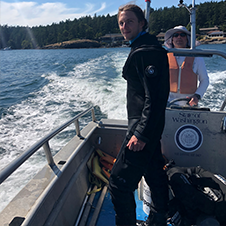 DOMINIC SIVITILLI
DOMINIC SIVITILLI
domsivi@uw.edu
Dominic Sivitilli is a PhD student in Psychology and Astrobiology. He researches octopus behavior and cognition with a focus on the sensory-motor control strategies that the octopus uses to coordinate its eight, highly flexible arms. His project involves analyzing how octopuses use their arms to explore and forage within computer-designed, 3D printed tasks. He currently works in the Lab of Comparative Systems Neuroscience with Dr. David Gire. As an undergraduate in the lab of Dr. Sharon Doty, he researched plant tolerance to extreme conditions resulting from microbial symbiosis. He also previously studied the effects of environmental enrichment on animals at the Woodland Park Zoo. He has been a scientific diver with the UW since 2016.
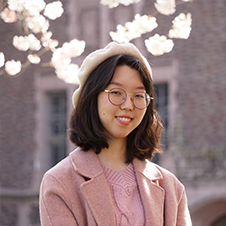 YERIM HEO
YERIM HEO
yerimh@uw.edu
Yerim Heo is a senior studying computer science and minoring in music at the University of Washington. Her focus is computer graphics, and she was the student producer and lead SFX designer for one of the 2020 Animation Capstone short films, Taking Flight. She’s interested in exploring new and different mediums for storytelling. She also has a huge love for animals and has grown to love and appreciate octopuses even more throughout this project. In the future, Yerim hopes to continue to explore and experiment with unique mediums for telling stories that resonate with people.
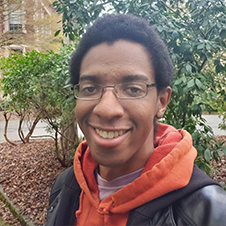 TERRELL STRONG
TERRELL STRONG
stront2@cs.washington.edu
Terrell Strong earned his B.S degree in Computer Science from the University of Washington in 2020 and is currently continuing towards a master's degree in Computer Science. His interests include virtual reality, computer vision, graphics, and animation. In the past he worked on Dazzle as part of the animation capstone class in 2019-20 and worked on two educational VR experiences as part of an internship with the Seattle Public Library. He enjoys being a part of interdisciplinary projects that combine both technology and art and looks forward to contributing to more projects in the future.
 OLIVER ABATE
OLIVER ABATE
oabate@uw.edu
Oliver Abate is a Linguistics major interested in game development, animation, and digital production in general. He has a particular interest in Virtual Reality as it is such a novel way of communicating content. He started working with the digital octopus as the Effects and Lighting lead in the 2020 Animation Capstone, and is hoping to continue using technology to let people experience the world through the eyes of an octopus.
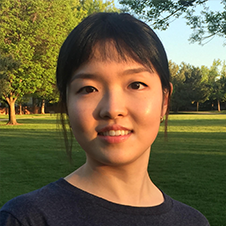 YOUJEAN CHO
YOUJEAN CHO
youjean@uw.edu
Youjean is a visual communication design major at the UW who is passionate about visual storytelling and designing creative solutions to problems. She joined Animation Capstone 2020-21 as a layout and sfx lead while also taking part in concept art and lighting. In 2021 summer, she worked on an augmented reality project at Nike and her current works include typography and motion graphics design projects. Youjean became a member of the VR octopus research team in winter of 2021 to learn more about visual development and user experience for immersive technologies.
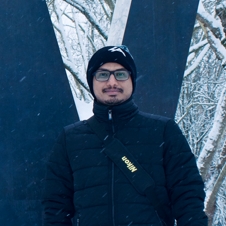 MAYANK KUMAR
MAYANK KUMAR
krmayank@uw.edu
Mayank is a Graduate Student in the Department of Electrical and Computer Engineering at the University of Washington(UW) Seattle(USA). He earned his B.Tech. from the Indian Institute of Technology(IIT) Ropar(India). He is passionate about AI and is exploring areas in autonomous driving technologies and virtual reality. After his bachelor's, he worked in the automotive industry for four years. He was Senior Systems Engineer at Mahindra and Mahindra, where he led Human Machine Interface(HMI) design for instrument clusters. He was responsible for developing instrument clusters for electric and IC engine vehicles. He has been exploring multiple areas in technology development and has acquired significant skills in Systems Engineering, HMI design & development, business, product, and project management. He also shares curiosity towards business. He has led social entrepreneurial projects with Enactus IIT Ropar and co-founded a failed start-up that aimed at making scientific education accessible to everyone.
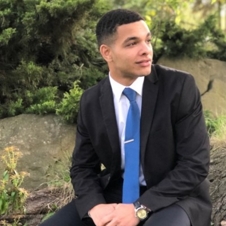 TILBOON ELBERIER
TILBOON ELBERIER
elberb@uw.edu
Tilboon is an undergraduate student within the department of Electrical and Computer Engineering. He is focusing on both Embedded Computing Systems as well as Digital VLSI. He chose to mix these two focuses because of his interest in the overlap of software and hardware design. Tilboon has a vast amount of experience working with robotics and software development for embedded systems. He also has recently gained further experience in physical design at the transistor level. Tilboon is very passionate about robotics and the potential these systems can have with the integration of AI and machine learning. Outside of this, Tilboon is very passionate about teaching. He teaches embedded programming to low income students at local highschools. He also has been a teacher assistant for several courses within the EE and CSE departments at the UW. He also enjoys spending time outside and playing sports such as soccer and basketball.
 HELEN TRAN
HELEN TRAN
hthanh@uw.edu
Helen is an Electrical Engineering major at University of Washington. Her focus is Embedded Systems coming from the interest for the intersection of hardware and software. She is skilled in Python, Java, C, Verilog and basic Design Management such as HTML, CSS and Adobe Suites. For 2D/3D drawings and models, she has foundations of using AutoCAD. Helen has been involved as a research associate at Sensors, Energy, and Automation Laboratory of the ECE Department. Helen is enthusiastic about learning new technologies of the future, particularly this opportunity to work with VR Octopus Research Team. She is also interested in the science of psychology and would love to explore the how that intersects with technologies in the future. Besides technologies, Helen loves art - film photography, traveling, and exploring crafting hobbies.
ROBERT CRIST
rcrist@uw.edu
Robert is an undergraduate student at the University of Washington studying electrical engineering. He has a strong foundation in programming Java, Python, as well as Systems Verilog. From previous projects, he has experience with creative software like Photoshop, Premiere Pro, After effects, and Illustrator. Robert’s interest in electrical engineering comes from the intersection of hardware and software which led him to pursue embedded systems. He also has a strong interest in VR as well as robotics and is excited at the opportunity of working in this space. Outside of academics, Robert likes to spend his time rock climbing in both indoor gyms as well as outdoors in places like Little Si, Leavenworth, and Smith Rock.